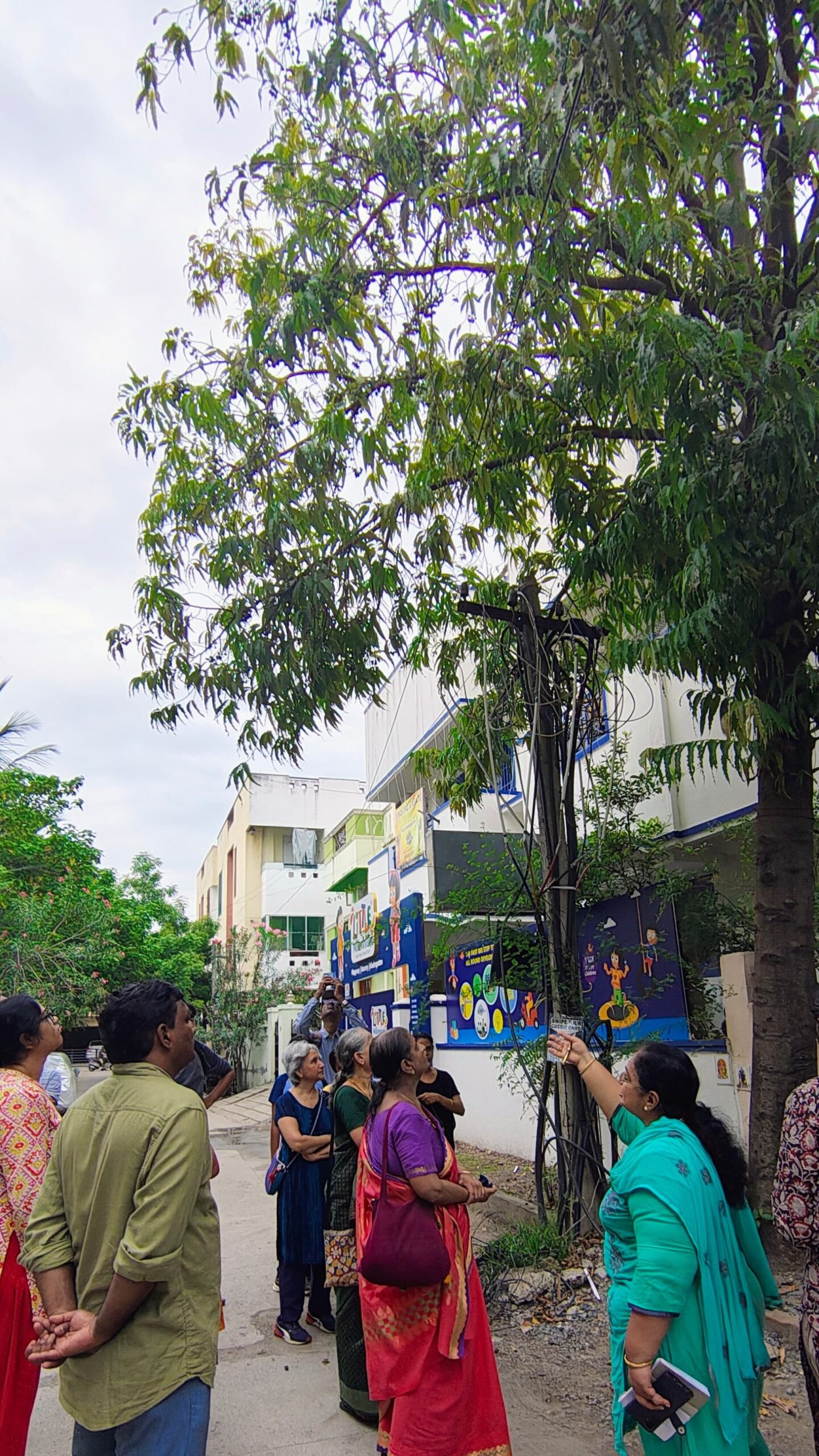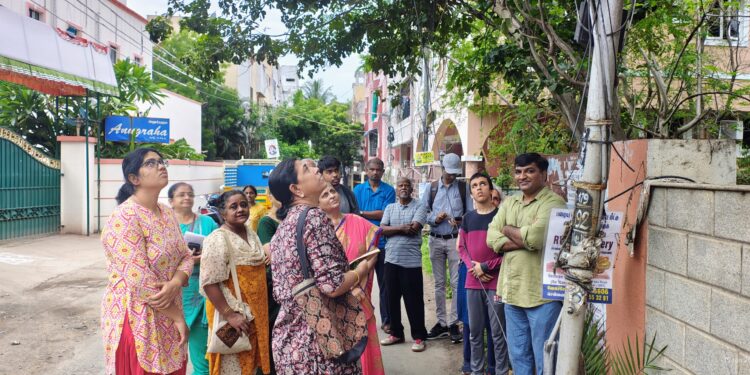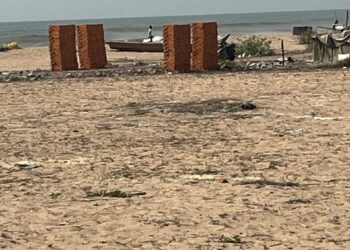As part of the ‘Our Tree’ series by NGO Nizhal, a tree walk was conducted at Perungudi’s VOC Street on June 15. Led by V.Latha and Lakshmi Babu, enthusiastic residents learnt intricate details and trivia about the trees in the neighbourhood. By walking you through it, we hope you can identify these trees in your neighbourhood as well.
- Magizham (Bullet wood): The name of the tree speaks about its strength. Their wood is used for constructing houses and bridges. The flowers are small, cream in colour, hairy and scented. The dried flowers are used in perfumes.
- Nettilingam (Mast tree): It looks like the actual Asoka tree, and is thus called ‘False Ashoka’. They were originally planted for the shipbuilding industry. These trees are tall and fast-growing and are seen along the avenues. They act as a shield for the buildings from pollution and sunlight.
- Nochi: This is a five-leaved evergreen medicinal tree. Its leaves look like the foot of the peacock. This can be easily grown in a home/ terrace garden.
- Ezhilaippalai (Scholar tree): The species name ‘scholaris’ refers to the fact that the timber of this tree is traditionally used for making wooden slates for school children. Regular branching gives the tree a beautiful shape. Leaves are glossy, flowers are small, greenish-white in colour. After sunset, the fragrance of the flowers prevails in the surroundings.
- Neipazham (Singapore Cherry): This non-native tree is home to many fruit-loving birds. Flowerpecker is one of the smallest birds that resides on this tree. Its fruits are edible and sweet when ripe.
- Poovarasu (Thespesia populnea): It is a medium size fast-growing evergreen tree. Also called the Indian Tulip tree, its yellow flowers blossom throughout the year. It has its mention in the superhit Tamil film song ‘Poovarasam poo poothachu’.
- Vilvam (Bael tree): As the leaves of this tree resemble the three eyes of lord Shiva, it is considered sacred. It is also called the Stone Apple tree, as its fruit is hard to peel. All parts of this tree are medicinal.
- Odhiyam (Indian Ash tree): This native tree is deciduous and sheds leaves in the summer season. The tree has deep roots and grows on sea shores. It is good for soil retention. The wood is used for making kattumaram (catamaran). The village Odhiyur near Marakkanam is named after this tree.
- Pungam (Pongamia Pinnatta): Also called the Indian Beech tree, it has strong roots and withstands saline conditions. It is ideal as an avenue tree. Its pinkish-white, fragrant flower forms a carpet under the tree. It is a rich nutrient for plants. Pungam oil is a potential biofuel.
- Gulmohar (Delonix Regia): This tree is native to Madagascar. Its large showy red colour flowers contribute to its name ‘Neruppu konrai’ and Phoenix flower. It is shallow-rooted and thus liable to get uprooted during heavy storms.

About Nizhal’s tree walks
Many of Nizhal’s tree walks are conducted by their team, which includes volunteers like Latha. She is a model volunteer trained at Nizhal Perungudi. “From baby steps, Latha has taken charge completely as a Coordinator. We need more community leaders like them in every neighbourhood! Nizhal green spaces are therapeutic spaces for the community to nurture Nature and their own selves. We hope more volunteers from different neighbourhoods come forward to support this cause! The walks are one of the ways to connect citizens to trees so that they can begin to know and care for and speak up for them!” says Shobha Menon, Founder of Nizhal. Nizhal can be reached at 98409 04621, 98841 14721, 94450 28067, 98414 49829; [email protected]; www.nizhaltn.org.











